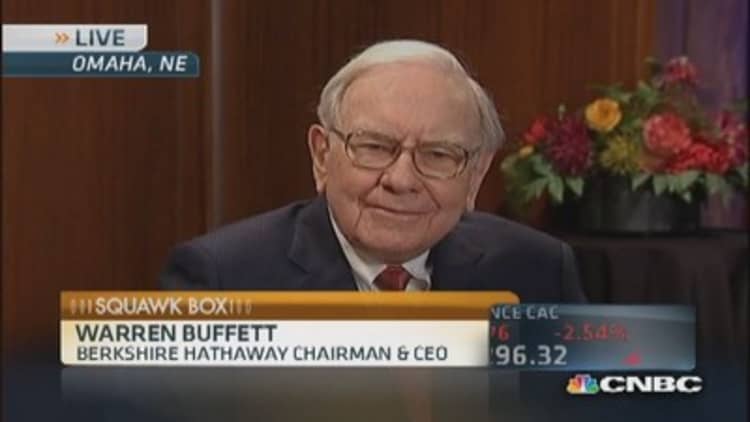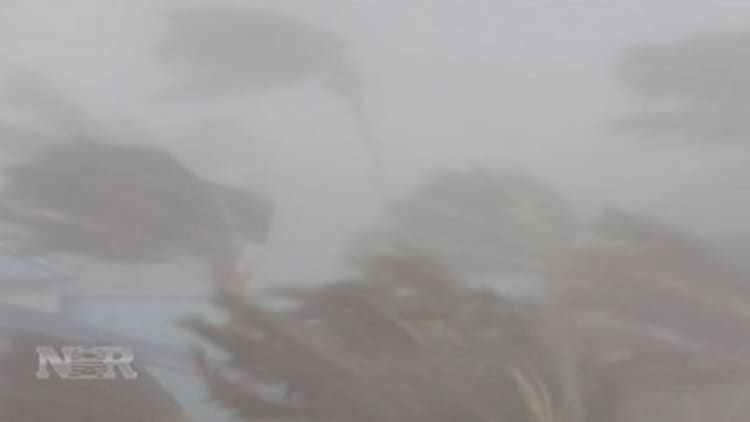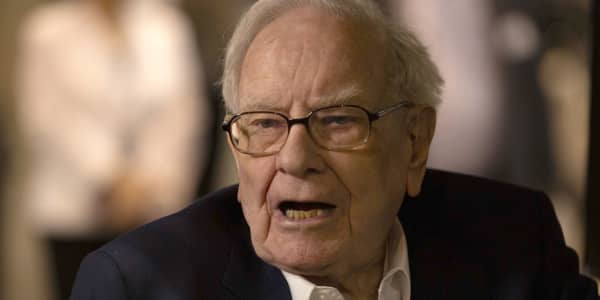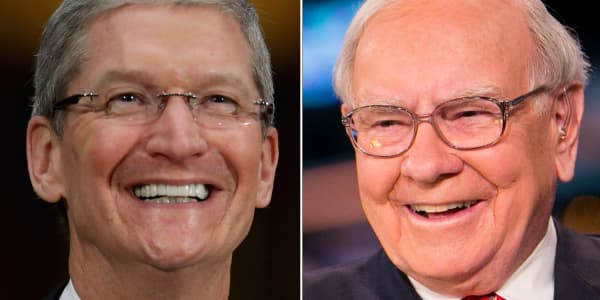When Warren Buffett held his annual shareholders meeting last weekend in Nebraska, investors obsessively discussed everything that the Sage of Omaha said about the equity market and his succession plans.
But another intriguing issue, buried deep in corporate filings, went largely ignored: Berkshire Hathaway has quietly "constrained the volume of business" it does in the reinsurance world because of "management's assessment of the adequacy of premium rates". In plain English, this means Mr Buffett is more reluctant to insure people against natural disasters – because it no longer pays.
Investors and central bankers alike should take note. A casual observer might assume Mr Buffett's move has arisen because natural disasters are becoming more unpredictable. After all, just this week the White House released a report blaming climate change for more extreme heat, wildfires and torrential rains.
Read MoreNo climate change impact on insurance biz: Buffett
But in truth the reinsurance tale says more about the distortions in finance generated by super-loose monetary policy. The reason the business looks less appealing to savvy investors such as Mr Buffett is that a wall of new money has flooded in as investors hunt for returns. Quantitative easing has not simply prompted investors to embrace corporate and sovereign risk (say, Greek bank debt); it is prompting them to embrace environmental risk by insuring against losses from events such as hurricanes.
More from the Financial Times:
Investors place bet on catastrophe bonds
Disasters shake up insurance industry
Alternative reinsurers restructure industry
The $20bn market for catastrophe bonds, or "cat bonds", is a case in point. These instruments, which first cropped up two decades ago, essentially enable investors to bet on whether insurance companies will face claims from businesses affected by large-scale disasters, or whether the businesses themselves will suffer losses. They are typically issued for three years and, if no disaster occurs in that period, bond investors receive a good payout; otherwise, they have to pay out themselves.

When these risky securities appeared, only specialist hedge funds or other asset managers with expert knowledge of disaster risk dared buy them, meaning the market was small compared with the reinsurance world at large. In the past couple of years it has swelled dramatically, however, with a record $4.75bn cat bonds issued in the first four months of 2014 alone. And mainstream investors have jumped in: last year about four-fifths of the bonds were bought by pension funds and other large institutional managers.
Read MoreCatastrophe bond investors upped their bets in Q1
In part, cat bonds appeal because they offer better returns than the current ultra-low yields on risky corporate bonds. But they have another attractive feature: they are seen as "uncorrelated" with other asset classes. This is highly prized since the 2008 financial crisis, when many markets fell in tandem, making it hard to hedge risks.
But as investors have rushed in, the inevitable has occurred: yields have plunged. The average yield in recent months on a basket of cat bonds has hovered just over 5 per cent, about half the level seen two years ago. In some ways this is good news: falling yields helped cut the cost of buying insurance for consumers by about 15 per cent last year. The fact that the insurance sector is gathering a diversified pool of capital could make it more resilient. So much so that Jay Gelb of Barclays Capital says "alternative capital", such as pension funds, could in the coming years represent "up to 30 per cent" of the $300bn US property catastrophe reinsurance market, up from 15 per cent today.
Read MoreExtreme weather causes $125 billion insurance bill: Munich Re

But the key, as ever, is risk and reward. Many investors rushing to embrace cat bonds have never seen these instruments produce big losses; for while Superstorm Sandy caused damage two years ago, Florida and California have recently escaped severe shocks. This sense of relative calm means that investors seem unconcerned about the sharp fall in yields. Experienced insurers such as Mr Buffett, however, think this looks complacent; to them, the returns have fallen too low, in this era of low interest rates, to justify taking on catastrophe risk.
Of course, that might mean Mr Buffett and his like are being too conservative; more likely, it suggests pension funds could face a shock if or when the next disaster hits. Either way, it is a reminder of how easy money can create unexpected consequences. And that is a sobering thought – particularly as the Atlantic regions prepare for the hurricane season to start in three weeks.
Follow us on Twitter: @CNBCWorld




